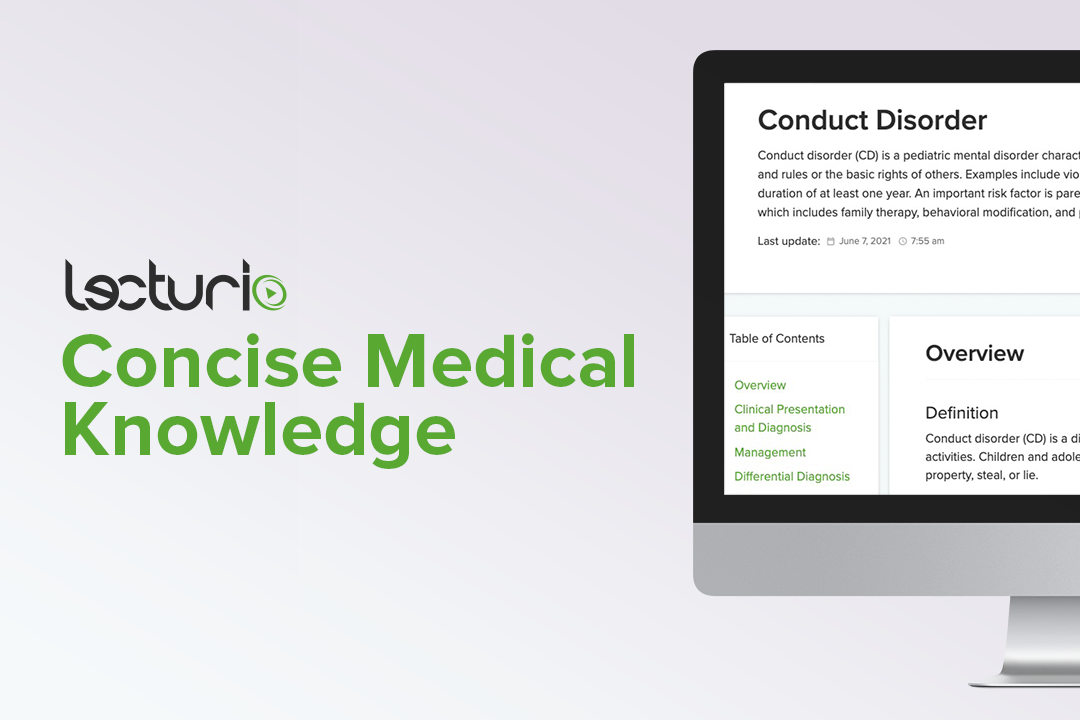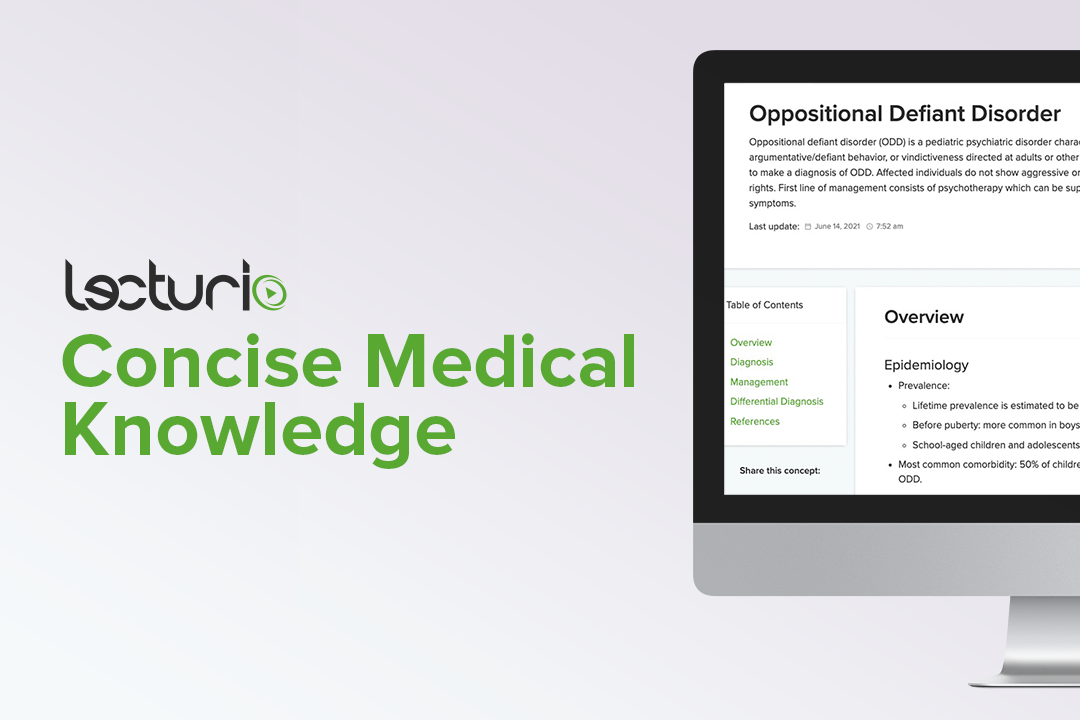Playlist
Show Playlist
Hide Playlist
Disruptive Behavioral Disorders
-
Slides DisruptiveBehavioralDisorders Psychiatry.pdf
-
Download Lecture Overview
00:01 Let's talk a little bit about child psychiatry now. 00:04 When it comes to disruptive behavioral disorders, there are a couple that you should know about for your boards. 00:10 Conduct disorder and also oppositional defiant disorder. 00:14 Let's go through the difference in each one. 00:16 A conduct disorder is a pattern of behavior that involves violation of the basic rights of others and also of social norms and rules. 00:27 Conduct disorder is a common diagnosis in outpatient child psychiatry clinics and it often occurs in boys more than girls and there's a high risk of developing anti social personality disorder in adulthood. 00:41 Remember, to qualify for a diagnosis of anti-social personality disorder it's actually a requirement that a patient show evidence of conduct disorder before the age 15. 00:53 There is an increase co morbidity of ADHD, mood disorders, substance disorders, and criminal activity as an adult. Now, let's take a look at oppositional defiant disorder. 01:05 This is a disruptive behavior but it does not impinge on the rights of another person. 01:13 The prevalence is up to 20% in children less than 6, usually starts before puberty. 01:19 It's more common in boys. We'll remit in about 25% of children but some may progress to develop conduct disorder. 01:28 The treatment for behavioral disorders include psychotherapy, behavioral modification, problem-solving skills, and parent skills teaching. 01:38 So basically it's a wrap around approach to the care of the child. 01:42 The thing that separates oppositional defiant disorder from conduct disorder, and this is very important, is that oppositional defiant disorder does not violate anyone's rights. 01:54 Let's look at the diagnostic criterion, for ODD there's a pattern of anger and irritability. 02:02 People are argumentative and defiant or vindictive and it lasts for at least 6 months and is exhibited during an interaction with at least one individual who's not a sibling. 02:15 It also requires an angry or irritable mood, loss of temper, being touchy or easily annoyed and often being angry and resentful, argumentative, and arguing with authority figures in particular. 02:31 Often defying rules or refusing to comply with the requests from authority figures, often deliberately annoying others, and sometimes blaming others for his or her mistakes. 02:44 There is vindictiveness, being spiteful. The disturbance is associated with distress and social, educational, and occupational functioning. And the behavior does not exclusively occur during the course of a psychotic episode, substance use disorder, or a mood disorder.
About the Lecture
The lecture Disruptive Behavioral Disorders by Helen Farrell, MD is from the course Mild and Major Neurocognitive Disorders.
Included Quiz Questions
Which of the following is described as a disruptive behavioral disorder that does not impinge on another person’s rights?
- Oppositional defiant disorder
- Conduct disorder
- Attention deficit hyperactivity disorder
- Antisocial personality disorder
- Childhood autistic disorder
Which of the following is FALSE regarding conduct disorder?
- Conduct disorder is rarely seen nowadays due to advancements in the health care systems.
- It involves the violation of the basic right of others or of social norms and rules.
- More commonly seen in boys than in girls
- There is a high risk of developing antisocial personality disorder in adulthood
- There is an increased co-morbidity of ADHD, mood disorders, substance use disorder, and criminal behavior in adulthood
Which of the following is NOT a treatment approach for behavioral disorder?
- Electroconvulsive therapy
- Psychotherapy
- Behavioral modification
- Problem-solving skills
- Parenting skills teaching
Customer reviews
5,0 of 5 stars
| 5 Stars |
|
5 |
| 4 Stars |
|
0 |
| 3 Stars |
|
0 |
| 2 Stars |
|
0 |
| 1 Star |
|
0 |





